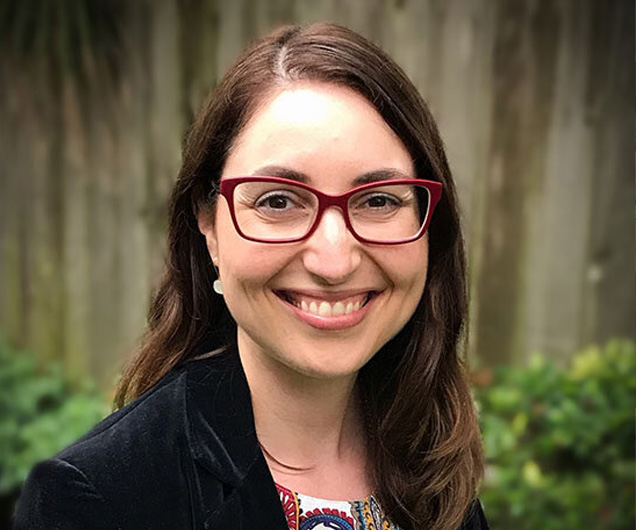
Leandra Zarnow, distinguished professor of history in the College of Liberal Arts and Social Sciences, has been awarded a prestigious Mellon Fellowship from the renowned American Philosophical Society’s Library & Museum, underscoring her intellectual prowess. Renowned for groundbreaking research and insightful contributions to women’s studies and feminist movements, Zarnow is set to delve into the life of Elsie Clews Parsons, an anthropologist involved in a secret feminist society.
“The American Philosophical Society was founded in 1743, and it's the oldest society of its kind in U.S. history,” Zarnow said. “It was founded by Ben Franklin, in his words, ‘to promote useful knowledge.’ It's interesting that this museum has stories of our founding framers connected in the heart of Philadelphia, right where the Constitution was born, the Liberty bell is found and papers on Elsie Clews Parsons are held.”
Zarnow will be holding a one-month residency in May 2024 as a Mellon Fellow. She will stay in Philadelphia to expand research for her forthcoming book, “The Heterodites: Six Women and the Secret Feminist Society that Shaped American Feminism.” This collective biography details the lesser-known narratives of six women often overshadowed by more prominent historical accounts and feminist movements of 20th-century America.
“One of the reasons I am excited about getting into Elsie’s archives is that she has all this published work, but what about her unpublished work? What about all her memoirs and manuscripts in early versions?” Zarnow asked. “She was a prolific letter writer; I am interested in thinking about how often she corresponded with these other women in the society.”
Zarnow located postcards sent to announce the time, date and place of Heterodite meetings in the archives as well as rosters of women from 1920s and 1930s that were members.
“The thing that drew this group together is variety, from labor unionists to stockbrokers to doctors and lawyers,” Zarnow said. “There were women who didn’t work and women who did. Women who were wed and some that were single. Primarily, the leaders were privileged women because they had the time to get together every other Saturday, with attendees from all over the country.”
Parsons, a White Anglo-Saxon raised in a privileged household, eventually rejected many structures of domesticity during the time. Instead, she dedicated her life to researching and discussing other cultures and pinpointing current issues within the dominant, White culture. Parsons was very interested in gender equity and was an early feminist, dedicating her life to unearthing the hidden stories of women’s experiences and contributions to society.
"I loved the idea that even though there is no record of the group’s meetings, maybe I could go from to personal archives centered on different participants in the collection to try to find traces of involvement,” Zarnow stated. “In the last year alone, I have gone to archives around the country to research traces and gain additional information.”
The Society’s collections will provide a rich resource for Zarnow’s research. The collections include more than 14 million pages of manuscripts, 275,000 bound volumes, 250,000 images, thousands of hours of audio tape, and 3,360 three-dimensional artifacts and fine art objects. The museum is home to three research centers as well as Revolutionary-era manuscripts, hundreds of rare books and pamphlets,e and 8,000 reference volumes.
“I am interested in looking at her as part of a constellation of women, organizers and activists,” Zarnow said. “When [Parsons] joins heterodoxy, it is just at the beginning of her own career. I think the group played an important role in encouraging her to go out. Before joining, she was an academic, a mother, a politician’s wife, and she comes from a storied ‘wasp family.’ Being part of this group helped her take the lead in defining herself as an intellectual.”
In such, Parsons walks alongside women trying not only to demand a position in society but also to shape and mold common values and how democracy is defined, articulated and practiced. “The question that interests me is ‘How did these women articulate their position in society through these different institutional channels, whether they are involved in higher education such as Gerda Lerner, politics like Bella Abzug or even a combination of the two like we see with heterodoxy?’” Zarnow asked.
Zarnow’s research has received support from various institutions, including the National Endowment for the Humanities, Woodrow Wilson Foundation, Hadassah-Brandeis Institute, Feinstein Center for American Jewish History and multiple libraries. Additionally, she has been honored with research prizes from the American Bar Foundation, Association of Jewish Studies and the National Women’s Studies Association.